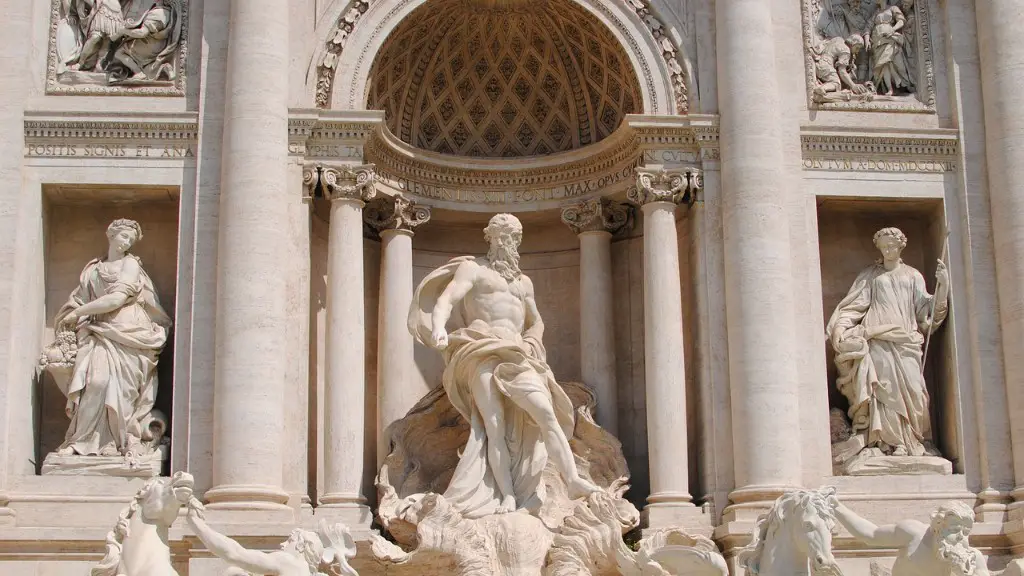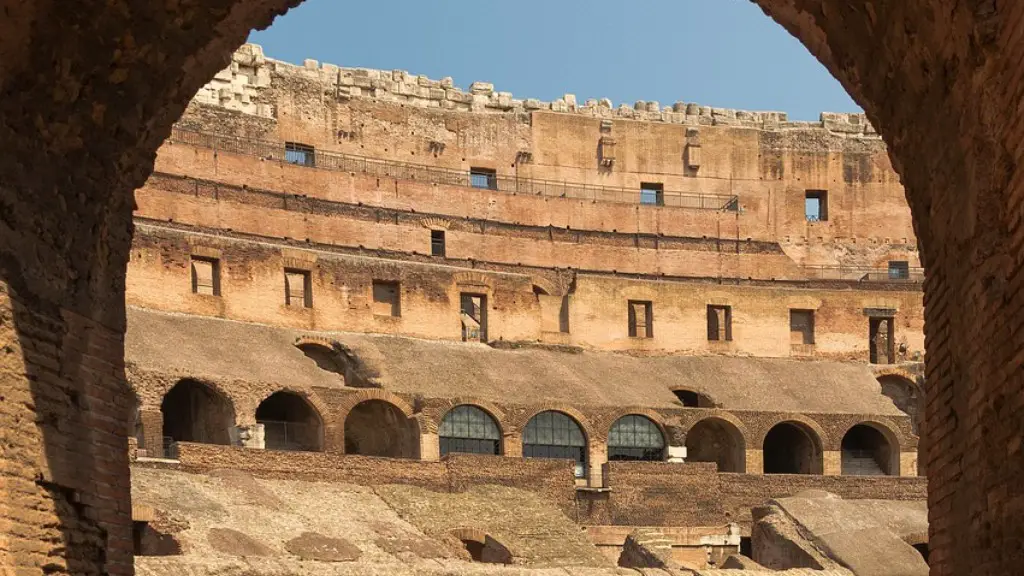The Early Years of the Senate
The Senate House in Rome was an assembly hall for the Senate of Rome where all politicians and leaders of the Roman Republic gathered to voice their opinions and debate the various laws, bills and decrees established at the time. The Senate House was an incredibly significant part of Roman life and was seen as the de facto government of the Roman people. It was established over two thousand years ago during the reign of the Roman Emperor Tiberius. During its inception, it was made up of 300 senators and some equestrians and patricians. It is said to have been built in the area just south of the Forum Romanum, near the Temple of Castor and Pollux.
The Senate during this time was seen as the ‘heart’ of the Roman Republic and its members were seen as the most influential and important people in the Roman world. In addition to its governmental duties, the Senate was also the highest court of law and its rulings were seen as the authoritative voice in the legal system. This gave the Senate tremendous power. In fact, the Senate often had control over the magistrates, governors and provincial representatives who were in charge of enforcing Senate bills and decrees. In addition, the Senate had control over the treasury and finances of Rome, meaning it was responsible for overseeing the budget, taxation and expenditure of the Roman Republic.
Function of the Senate House
The Senate House was used to assemble the members of the Senate and discuss the various laws, bills and decrees that were submitted. It is likely that the Senate House was modelled after similar structures in Greece, such as the Bouleuterion that existed in Athens. In addition to the discussion and decisions made within the Senate House, members of the Senate would also use it to house their debate over important matters. The public was also allowed to enter the Senate House to hear proceedings and witness important debates. It was said to have possessed ceremonialis, an ornate wooden lectern, where the magistrate or consul spoke.
Modern Relevance of the Senate House
The Senate House in Rome remains relevant today, as it serves as a reminder of the importance of communal and collective decision-making. The Senate House serves as a reminder to citizens that the power of the people is the ultimate ruling force in government. It is also useful in understanding the role of politics in early Roman Republic, as the Senate was seen as the ruling class and its decisions were seen as the voice of the people.
The Senate House also serves as a reminder of the importance of respect and dialogue. As the members of the Senate gathered to debate and analyze laws, bills, and decrees, they did so with respect and civility. This respect and civility are necessary whenever people come together to discuss and debate important matters, as it allows people to compromise and find creative solutions even when they disagree.
Symbolism of the Senate House
The Senate House was also an important symbol of the Roman Republic. It was seen as a symbol of Roman strength and power, as it reminded citizens of the great republic that spanned both sides of the Mediterranean and included some of the most renowned and advanced cities in the world.
The Senate House was also a symbol of law and justice. Its use as the de facto government and court throughout the Roman Republic meant that citizens looked to the Senate House and to its members for safety and protection. This also meant that citizens looked to the Senate House for justice, as it often determined the legality and legitimacy of laws.
Challenges of the Senate House
Despite its power and influence, the Senate House did have its flaws. It was often criticized for being a board of patronage, as some members of the Senate were able to influence and sway the decisions made by the Senate. This often meant that members of the Senate thought of themselves before the best interests of the people.
The Senate House was also criticized for its lack of efficiency. Because of the sheer magnitude of debates that took place in the Senate House, it was often slow to respond to the needs and desires of citizens. This often meant that it was unable to act in a timely manner and address the most pressing issues of the day.
End of the Senate House
The Senate House eventually saw its end when the Roman Republic was overthrown by Julius Caesar in 44 BC. Caesar abolished the Senate and replaced it with his own government. This brought an end to the Senate House, which had served as an important part of Roman life for centuries.
Despite its demise, the Senate House remains an important part of Roman history and serves as a reminder of the importance of collective decision-making and respect for others’ opinions. It is a reminder of the power of the people, as well as the importance of dialogue. As we look back, it is important to remember the lessons from the Senate House and to strive for open, honest and respectful discussion whenever justice and change are sought.
Legacy of the Senate House
The legacy of the Senate House remains today and can be seen in modern democracies and representative systems. Despite its flaws, the Senate House serves as an example of the power of collective decision-making and respect for others’ opinions. It is a reminder of the importance of respect and dialogue and the potential of collective action.
The Senate House is also a reminder of the importance of historical perspective. It serves as an example of the importance of understanding the past in order to inform decisions in the present and to plan for the future. We can look to the Senate House and its legacy to continue the dialogue that is necessary to achieve the love and unity that we strive for.
Impact of the Senate House
The impact of the Senate House on modern civilisation is undeniable. It serves as a reminder of the importance of collective decision-making, respect for others’ opinions and open dialogue. It is also a reminder of the power of respect and civility and the importance of understanding the past in order to inform the present and future.
The Senate House was also a reminder of the importance of politics in the Roman Republic and its ability to shape and mould the daily lives of citizens. The Senate House reminded citizens of their roles in a democratic society and the importance of communal and collective decision-making.
Influence of the Senate House
The Senate House still has an influence on modern systems of government, even though it has long since fallen out of use. It serves as a reminder of the importance of respect, civility and collective decision-making. It also serves as a reminder of the importance of public dialogue and discourse when seeking to achieve justice and change.
The Senate House reminds us that the power of the people is the ultimate ruling force in any society. It reminds us to always strive for open dialogue, honest discussion and respectful compromise when working together to create the best possible outcomes.
Significance of the Senate House
The significance of the Senate House in Rome is that it serves as a reminder of how powerful collective and communal decision-making can be. It serves as a reminder of the importance of respect and dialogue and the power of the people to shape the environment around them.
The Senate House also reminds us of the importance of understanding the past in order to inform the present and the future. We can learn from the lessons of the Senate House and strive for open, honest and respectful dialogue whenever justice and change are sought.


